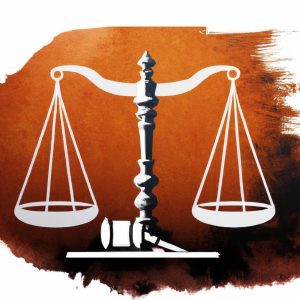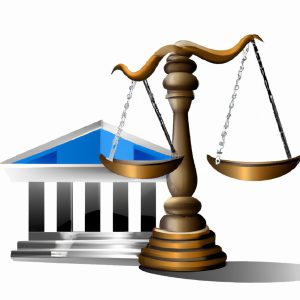In the intricate web of estate planning and probate, the question of who bears the burden of a parent’s debt following their passing is a matter that often sparks confusion and uncertainty. As seasoned practitioners of elder law and estate planning at Morgan Legal Group in New York City, we navigate this complex terrain with precision and clarity. In this article, we shall delve into the nuances of posthumous debt responsibility, shedding light on the legal obligations and rights of individuals involved in the settlement of a deceased parent’s financial affairs. Join us as we unravel the intricate tapestry of familial debt obligations, guiding you through the intricate process with expert insight and unwavering dedication.
– Understanding the Legal Obligations Regarding Parents’ Debts After Death
Responsibility for parents’ debts after death can be a complex issue that varies depending on the circumstances.
Generally, upon the death of a parent, their debts become the responsibility of their estate. This means that the debts will need to be paid off using the assets left behind by the deceased parent. However, if there are not enough assets in the estate to cover the debts, creditors may not be able to collect the full amount owed.
– Exploring the Role of Estate Planning in Managing Parental Debt
When it comes to managing parental debt after death, it is important to understand the role of estate planning in this process. Estate planning can help ensure that debts are properly addressed and managed, and that assets are distributed according to the deceased parent’s wishes. Through Wills and trusts, individuals can outline how their debts should be settled and how their assets should be distributed among their beneficiaries.
It is crucial to work with a knowledgeable estate planning attorney to navigate through the complexities of parental debt after death. An attorney can help determine who is responsible for the parent’s debt, whether it be the estate or the beneficiaries. By properly planning and strategizing, individuals can protect their assets and ensure their loved ones are not burdened with unnecessary debt obligations.
– Navigating Potential Challenges and Strategies for Addressing Parents’ Debts
| Options | Responsibility |
|---|---|
| 1. Estate | If the parents have an estate, their debts will typically be paid from the assets in the estate before anything is distributed to heirs. |
| 2. Joint Debt | If the debt is joint with a spouse, the surviving spouse may be responsible for the debt. |
| 3. Co-signers | If a child has co-signed a loan with a parent, they may be responsible for the debt. |
It is important to consult with an experienced estate planning attorney to understand your rights and responsibilities regarding your parents’ debts after their passing. Each situation is unique and requires careful consideration of state laws and individual circumstances. Through proper planning and legal guidance, you can navigate potential challenges and develop strategies to address any outstanding debts in a responsible manner.
Remember that communication is key when dealing with financial matters after a loved one’s death. Discussing the situation openly with family members can help prevent misunderstandings and conflicts. By seeking professional advice and working together, you can ensure that your parents’ debts are handled appropriately and that their legacy is protected for future generations.
– Consultation and Legal Guidance from Experienced Estate Planning Attorneys
In the unfortunate event of a parent passing away with existing debts, it is essential to understand the legal responsibilities that may arise concerning the repayment of those debts. While the loss of a loved one is undoubtedly a difficult time, creditors may still seek repayment from the deceased individual’s estate. In most cases, the responsibility for repaying the debts falls on the estate itself, rather than the surviving family members.
However, there are exceptions to this general rule, and it is crucial to seek guidance from experienced estate planning attorneys to navigate the complexities of debt repayment after a parent’s death. Our team at Morgan Legal Group can provide expert consultation and legal guidance to ensure that you understand your rights and obligations in these circumstances. By working with our knowledgeable attorneys, you can protect your interests and make informed decisions regarding the repayment of your parent’s debts.
Q&A
Q: Who is responsible for a deceased parent’s debt?
A: When a parent passes away, their debt does not automatically transfer to their children or other family members. However, there are some exceptions to this rule.
Q: What factors determine if children are responsible for their parent’s debt?
A: In general, children are not responsible for their parent’s debt unless they co-signed a loan or are a joint account holder. Additionally, if the debt is tied to assets in an estate, it may need to be paid off before any inheritance is distributed.
Q: Can creditors come after family members for a parent’s debt?
A: Creditors can attempt to collect a deceased parent’s debt from their estate. If there are not enough assets to cover the debt, creditors may not be able to collect.
Q: How can children protect themselves from inheriting a parent’s debt?
A: Children can protect themselves by not co-signing any loans or becoming joint account holders with their parents. Additionally, parents can work with an estate planning attorney to ensure their debts are properly accounted for and settled after their passing.
The Conclusion
In conclusion, the issue of who is responsible for a parent’s debt after their death can be complex and emotionally charged. While children may feel a sense of obligation to handle their parents’ financial affairs, it is important to understand the legalities surrounding debt inheritance. Consultation with a financial advisor or attorney can provide clarity on the specific circumstances and responsibilities involved. Ultimately, navigating the aftermath of a loved one’s passing requires patience, communication, and a clear understanding of the laws in place. Remember, while debts may pass on, the memories and love shared with a parent are priceless and enduring.
The loss of a loved one is a difficult and emotional time. Aside from coping with the grief and arrangements for funeral services, the passing of a parent can also bring about financial responsibilities. One common concern that many adult children have is whether they will be responsible for their parent’s debt after their passing. This can lead to a lot of confusion and stress, especially if the parent had significant debts. In this article, we will explore who is responsible for a parent’s debt after death and provide some practical tips for handling this situation.
Understanding Debt After Death
Before we dive into the specifics of who is responsible for a parent’s debt after death, it is essential to understand the different types of debt and how they are treated upon a person’s passing.
1. Secured Debt: This type of debt is backed by collateral, such as a car or a home. In the event of a person’s passing, the creditor can take possession of the collateral to satisfy the debt.
2. Unsecured Debt: Unlike secured debt, unsecured debt is not backed by collateral. Examples include credit card debt, personal loans, and medical bills. In most cases, the estate is responsible for paying off these types of debts before distributing any assets to heirs.
3. Joint Debt: Joint debt is debt that is held in both the parent’s and child’s name. In these situations, the surviving borrower is responsible for paying off the debt.
With this in mind, let’s take a look at who is responsible for a parent’s debt after death.
Responsibility for Parent’s Debts After Death
1. Estate: As mentioned earlier, when a person passes away, their estate is responsible for paying off any outstanding debts. The estate consists of all the assets owned by the deceased, including bank accounts, investments, and properties. The executor of the estate, usually named in the deceased’s will, is responsible for managing the estate and settling any debts before distributing any remaining assets to the beneficiaries.
2. Spouse: In certain cases, a spouse may be responsible for some of their deceased partner’s debts. This is typically the case if the debt is joint or if the state has community property laws in place. In community property states, all assets and debts accumulated during the marriage are considered equally owned by both parties. Therefore, the surviving spouse may be held responsible for paying off the deceased’s debts.
3. Children: Adult children are not usually responsible for their parent’s debts after their passing. Unless a child has co-signed a loan or is a joint account holder or beneficiary, they are not obligated to pay off any outstanding debts. However, it is important to note that if the parent leaves behind any assets, they may be used to pay off outstanding debts.
5. Life Insurance: If the deceased had a life insurance policy, the designated beneficiaries named in the policy will receive a payout upon the death of the insured. This money can be used to pay off any debts before being distributed to the beneficiaries.
6. Debt Forgiveness: In certain cases, debt may be forgiven after the death of the borrower. For example, federal student loans are usually discharged upon the death of the borrower. In other situations, creditors may choose to write off the debt if the estate does not have the assets to pay it off.
Practical Tips for Handling Parent’s Debts After Death
Dealing with a parent’s debts after their passing can be overwhelming, but there are some practical tips that adult children can follow to make the process more manageable.
1. Gather all financial information: As soon as possible, gather all of your parent’s financial documents, including their will, bank statements, credit card bills, and loan documents. This will give you a clear understanding of their financial situation and help you identify any outstanding debts.
2. Consult with an estate attorney: It may be beneficial to seek the advice of an estate attorney, especially if the estate is complex or large. An attorney can help you understand your rights and responsibilities and guide you through the legal process.
3. Notify creditors of the passing: Once you have gathered all financial information, notify your parent’s creditors of their passing. This will prevent any further collection activities and give you an opportunity to work out a settlement or payment plan.
4. Be cautious of debt collectors: Unfortunately, some debt collectors may try to pressure you into paying off your parent’s debt, even if you are not responsible for it. Avoid making any payments until you have a clear understanding of the situation and have consulted with an attorney.
5. Prioritize debt payments: If the estate does not have enough assets to pay off all outstanding debts, prioritize the debts that must be paid off first. This could include taxes, secured debts, and any essential bills that are still in your parent’s name.
In Conclusion
In most cases, adult children are not responsible for their parent’s debts after their passing. Still, it is essential to understand the different types of debt and who is responsible for paying them off. By following the practical tips mentioned above and seeking professional advice, you can navigate this process with more confidence and peace of mind.










